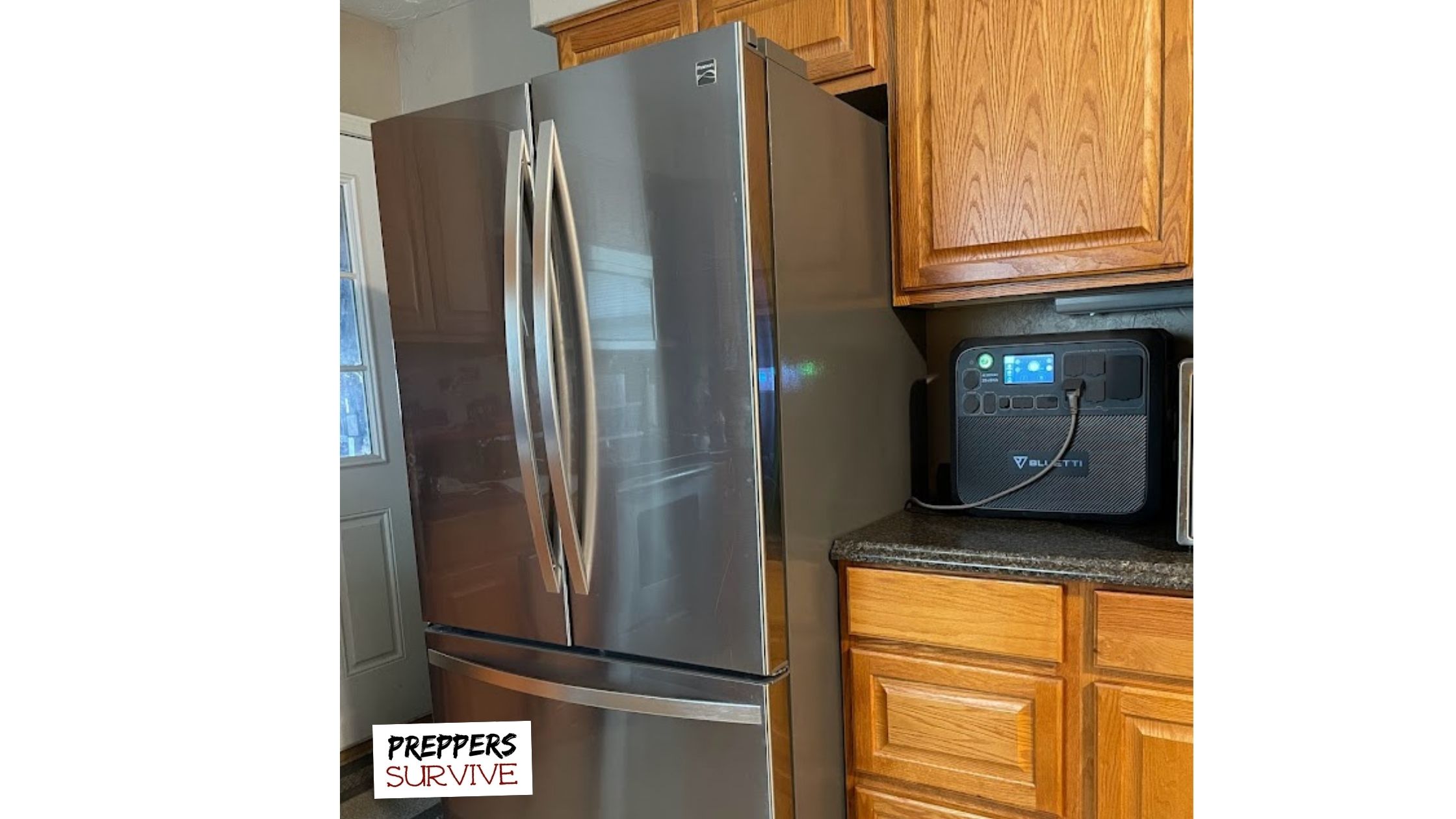
We use electricity for almost everything in our daily lives. It may be surprising just how much we rely on it every day. The three critical areas of self-reliance include shelter, food, and water. During a power outage, food is easier to keep from spoiling in a fridge or freezer when connected to a generator. A shelter is far more hospitable if you have lighting and can charge devices that provide entertainment, such as a tablet. Keeping your cell phone charged can connect you to loved ones. Shelter and food are a big part of the foundation of survival, and a generator can help that!
Having a portable power station is all about ensuring you can keep going with some normalcy. In addition to self-reliance, generators are great for prepping for an emergency disaster, camping, tailgating, and giving you the freedom to do things off-grid.
But how do you know which type of generator is suitable for you?
- stationary generator
- solar generator
- fuel generator
- inverter
This article will explain the differences in generators and which one I prefer. So, without further ado, let’s jump in.
____________________________________________________________
Different Types of Generators
*Note: If you are interested in buying a generator and want to check current prices, click the photos below; they are linked to Amazon.
Stationary Standby Generator
Stationary generators can power your entire home, which means they can keep the electricity working in every room during a power outage. This type of generator is excellent in a crisis it is permanently connected to your home. If set up correctly, with the flick of a switch, you have power during a power outage. They cost thousands of dollars and require a licensed electrician skilled in generators to set it up as a backup power supply.
____________________________________________________________
Solar Generator
One of the most convenient types of a generator is the solar variety. With a solar-powered generator, you can source your energy directly from the sun, allowing you to recharge the e-generator as long as there is sun. There is significant variation between solar generators. Some are exclusively powered by solar energy, whereas others use solar panels as a backup option when you’re away from an outlet. A mobile solar power generator is typically the quietest and smallest, making it highly versatile. However, with a 2000-watt unit, I can power a fridge and portable devices, not the whole house. The generator costs about .80 cents per watt; then there is the additional cost of solar panels.
____________________________________________________________
Fuel Generator
The most common generator is a gas-run generator because it is the most affordable, several hundred dollars. There are also dual-fuel generators that can run on more than one form of fuel. During a crisis, you can’t be sure which fuels are and are not going to be available. This generator provides options when resources are scarce. More often than not, the two kinds of fuel a dual-fuel generator will accept are gasoline and propane, though there are other variations on the market. These types of generators are loud, very heavy, and can only be operated outdoors.
Please note because these generators are loud and used outdoors, they are a target for theft. There is also maintenance to consider. Do you know how to change the oil or flush it out the line when storing it? Do you feel competent to check cooling systems and gas levels? If you don’t have experience with mechanical work, this type of generator may not be best for you.
____________________________________________________________
Inverter
Last on our list is the classic inverter generator. Highly popular among the camping and the RV community, they make up some of the most fuel-efficient generators currently on the market. They can only be run outdoors and cost several hundred dollars. Inverter generators run predominantly on gasoline, though you can sometimes find dual-fuel inverters that will accept propane too. They are generally designed to power more ‘sensitive’ electronics that could become damaged from voltage surges, such as televisions and computers.
____________________________________________________________
Things to consider before buying a generator
So, now you’re up to speed on the different kinds of generators it’s time to talk about purchasing criteria. There are a few things you should ask yourself before committing to any product. We’ve listed some that we think are the most important.
1. What Size Do You Need?
Generally speaking, the larger the generator, the greater the power capacity it possesses. New preppers might fall into the trap of thinking the bigger, the better, especially when it comes to emergency situations, but this isn’t always the case. If you need a generator that you can move easily, you need to be conscious of how large it is and how much it weighs. Even self-described portable generators can get pretty heavy, so make sure to read the specifications before purchasing.
Before going into any purchase, you should have a clear understanding of why you need it. This will help narrow the market down enormously. As a prepper, you likely need a generator for one of two reasons. The first is to keep your home going during a blackout, or to power your fridge freezer. The second is to keep your devices alive while you’re on the move or if you have to leave your premises suddenly. Knowing which category you fall into before shopping around will greatly assist your purchasing decisions.
I bought a 2000-watt mobile solar generator to back up an energy-efficient kitchen fridge when the power grid is offline. It provides me with 12-16 hours of power, but if my 500w solar panels are connected and the sun is up, then it can power the fridge for as long as I need.
However, if I’m camping, a small generator is more than enough. The electrical items I use are:
- Electric air mattress: 50 watts
- Mobile Phone: 5 watts (x 2)
- Smart Watch: 5 watts (x 2)
- Wireless Earbuds: 10 watts
- Tablet: 12 watts
- Camping Fridge: 38 watts (when using a fridge, it is recommended to use a generator that has a built-in inverter.)
So, a 500 – 720 watt mobile solar power supply would be a good fit to camp for several days. If the power runs low, I just connect the solar panels to the generator and recharge it.
2. What Wattage Do You Require?
The true way to measure the power of a generator is via its wattage. A small, portable generator is generally capable of hitting anywhere between 150 and 750 watts. A mid-sized portable or small stationary generator can produce between 1000 and 2400 watts. A large portable can hit 3,000+ watts, and a large stationary power station starts at 10,000 watts. To give you some idea of what different wattages can power, here are some examples:
- Refrigerator: 600 watts
- Computer: 250 watts
- Television: 200 watts
- Clothes washer: 1200 watts
- Electric dryer: 5000 watts
This can vary greatly based on the specific device or appliance you’re trying to power, so always double-check before plugging it into a generator power supply. This information can usually be found in the manual the product came with. Plugging a device into a generator that doesn’t have adequate watts will damage the generator!
3. How will I transport it?
Does the generator have wheels to transport it? Am I strong enough to move it? Some generators come with wheels, and some do not. Many can only be run outdoors, so it’s important to consider how you will move it into the yard.
____________________________________________________________
The reasons I prefer a solar generator:
- It’s significantly quieter than gas or propane generators! You don’t want to announce to your neighborhood that you have power when others don’t.
- Far less maintenance! You don’t need to change the oil, oil filter, spark plugs, fuel filter, or add a fuel stabilizer like with gas generators. And don’t forget to flush out the oil if the gas generator won’t be used for a long period of time.
- Easy to use! You don’t have a pull string to start the engine. Solar generators start up with the push of a button.
- Renewable Solar Power! You don’t have to deal with costly fuels to power a solar generator.
Conclusion
So there you have it! The basics about generators. The right generator depends on your needs, preferences, and skill set.
*July is a great time to buy a generator. I’ve seen many on sale this month.
Thanks for visiting Preppers Survive. Before you leave subscribe to our newsletter. If you enjoyed this article about mobile solar power supply, please share it on your favorite social media.
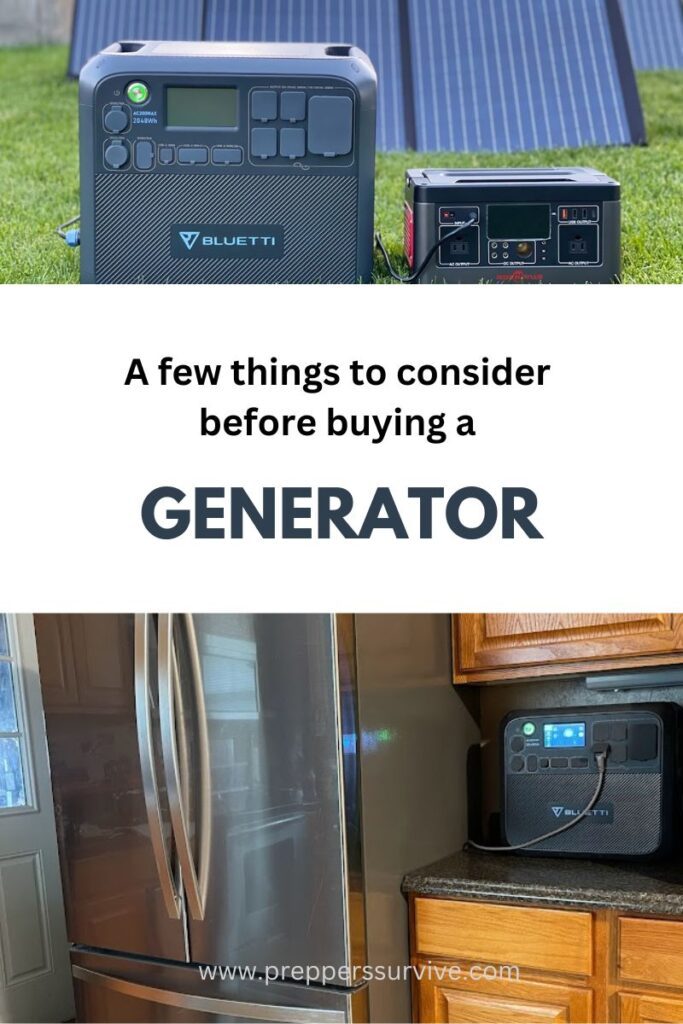



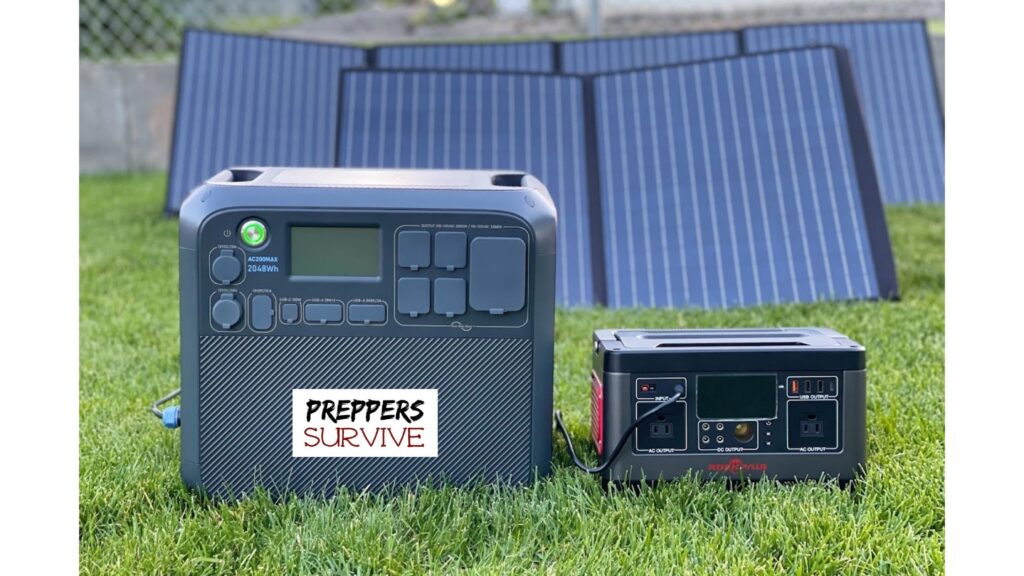
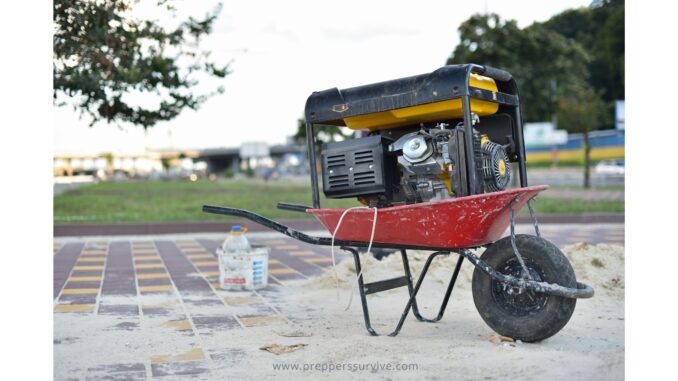
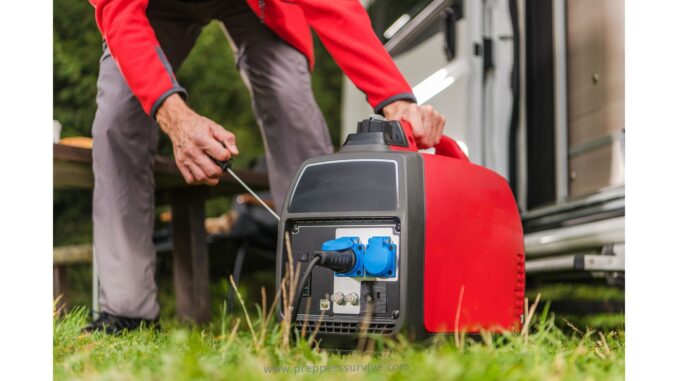
GREAT article on sizing and choosing a generator for your different needs. Your needs WILL vary with the type and length of emergency. In our case, MOST power emergency needs are of short (minutes and hours) duration. If we know that power will be restored soon, we don’t even get a small gasoline/propane generator out of storage. If the outage is expected to be longer and heat, cooling, security, and food spoilage are in question, then we bring a larger portable gasoline generator on line. Required maintenance and care of a generator is about the same weather the run time is short or long. Fuel storage is always an issue; not a concern with natural gas or propane. Safety is a very high priority and all generator operators MUST be trained in safe generator operation. If your neighbors, friends, or relatives know you have a generator, they will want to borrow it. Just my $.02 worth